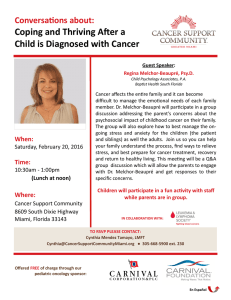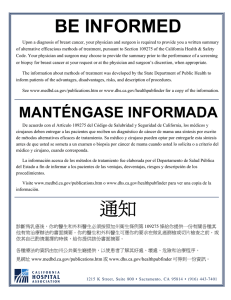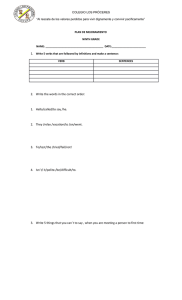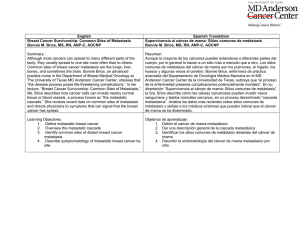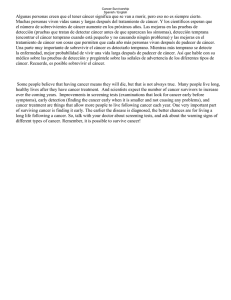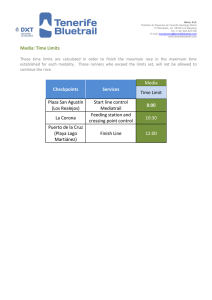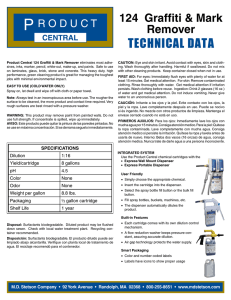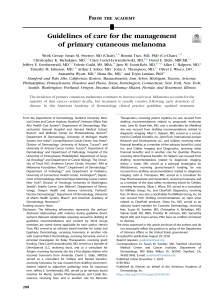Be Sun Smart! - Texas Cancer Information
Anuncio
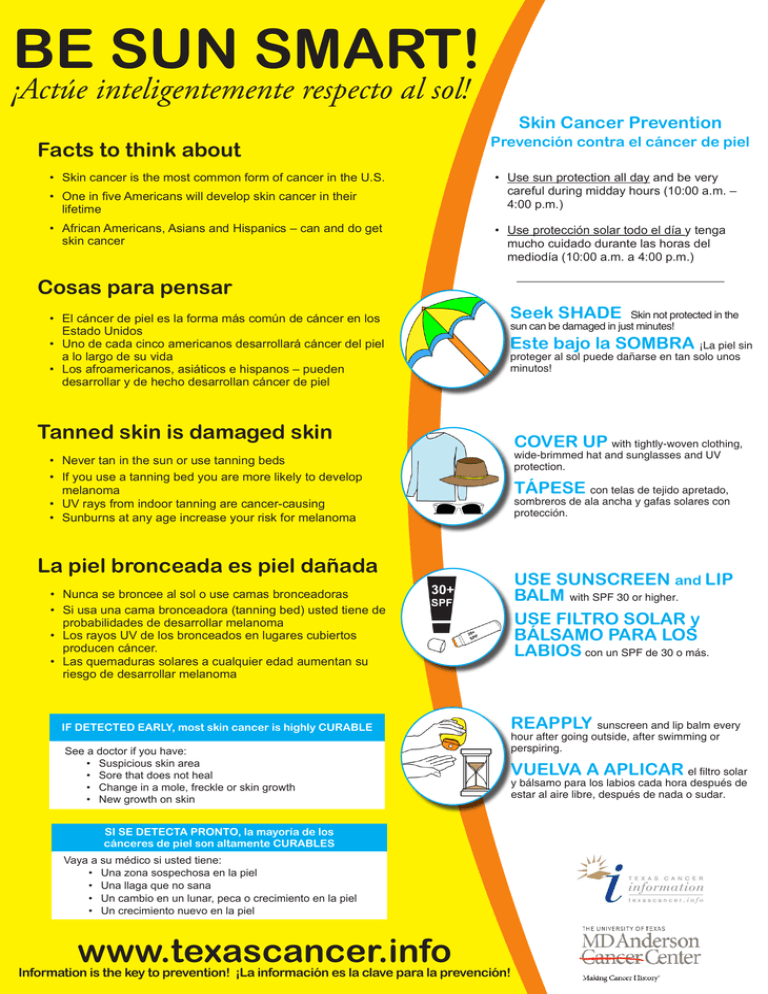
BE SUN SMART! ¡Actúe inteligentemente respecto al sol! Skin Cancer Prevention Facts to think about • Skin cancer is the most common form of cancer in the U.S. • One in five Americans will develop skin cancer in their lifetime • African Americans, Asians and Hispanics – can and do get skin cancer Prevención contra el cáncer de piel • Use sun protection all day and be very careful during midday hours (10:00 a.m. – 4:00 p.m.) • Use protección solar todo el día y tenga mucho cuidado durante las horas del mediodía (10:00 a.m. a 4:00 p.m.) Cosas para pensar • El cáncer de piel es la forma más común de cáncer en los Estado Unidos • Uno de cada cinco americanos desarrollará cáncer del piel a lo largo de su vida • Los afroamericanos, asiáticos e hispanos – pueden desarrollar y de hecho desarrollan cáncer de piel Seek SHADE Skin not protected in the sun can be damaged in just minutes! Este bajo la SOMBRA ¡La piel sin proteger al sol puede dañarse en tan solo unos minutos! Tanned skin is damaged skin • Never tan in the sun or use tanning beds • If you use a tanning bed you are more likely to develop melanoma • UV rays from indoor tanning are cancer-causing • Sunburns at any age increase your risk for melanoma La piel bronceada es piel dañada • Nunca se broncee al sol o use camas bronceadoras • Si usa una cama bronceadora (tanning bed) usted tiene de probabilidades de desarrollar melanoma • Los rayos UV de los bronceados en lugares cubiertos producen cáncer. • Las quemaduras solares a cualquier edad aumentan su riesgo de desarrollar melanoma IF DETECTED EARLY, most skin cancer is highly CURABLE See a doctor if you have: • Suspicious skin area • Sore that does not heal • Change in a mole, freckle or skin growth • New growth on skin SI SE DETECTA PRONTO, la mayoría de los cánceres de piel son altamente CURABLES Vaya a su médico si usted tiene: • Una zona sospechosa en la piel • Una llaga que no sana • Un cambio en un lunar, peca o crecimiento en la piel • Un crecimiento nuevo en la piel www.texascancer.info Information is the key to prevention! ¡La información es la clave para la prevención! COVER UP with tightly-woven clothing, wide-brimmed hat and sunglasses and UV protection. TÁPESE con telas de tejido apretado, sombreros de ala ancha y gafas solares con protección. USE SUNSCREEN and LIP BALM with SPF 30 or higher. USE FILTRO SOLAR y BÁLSAMO PARA LOS LABIOS con un SPF de 30 o más. REAPPLY sunscreen and lip balm every hour after going outside, after swimming or perspiring. VUELVA A APLICAR el filtro solar y bálsamo para los labios cada hora después de estar al aire libre, después de nada o sudar. Talk to Your Patients about Skin Cancer: • Melanoma incidence rates have been increasing for at least 30 years. • Before age 40, the incidence rate in women is twice that in men. After 40, the rate is higher in men. Among those 80 and older, the rate in men is three times that in women. • Skin cancers account for nearly half of all cancers diagnosed in the United States. • Texas ranks fourth in the U.S. for estimated number of new cases of melanoma, with about 3,930 individuals who will be diagnosed in 2013. • 35 percent of melanomas are diagnosed in individuals under age 55. • Estimated annual cost of melanoma treatment in the U.S. is $1 billion. • Risk factors: — Sunburns — Exposure to ultraviolet radiation from sun and tanning beds — Fair complexion — Many or abnormal moles — Personal or family history of skin cancer — Occupational exposure to coal, tar, pitch, creosote, arsenic or radium — Immunosuppression, common among organ transplant recipients and individuals with HIV infection and autoimmune diseases • African Americans, Asians and Hispanics can get skin cancer • Know your ABCDEs: Asymmetry, Border irregularity, Color variation, Diameter of 6mm or larger, Evolving (mole or skin lesion that looks different from the rest or is changing in size, shape or color) Free patient education poster from Texas Cancer Information For more free posters, Texas Cancer Information brochures and the free, online continuing education course: Access to Cancer Care for Low Income and Uninsured Patients: Texas Cancer Information 1515 Holcombe Blvd. Houston, TX 77030 713-792-2277 Email: [email protected] www.texascancer.info For additional cancer-related continuing medical education information: Texas Medical Association’s Physician Oncology Education Program 800-880-1300, Ext. 1672 Email: [email protected] www.poep.org

